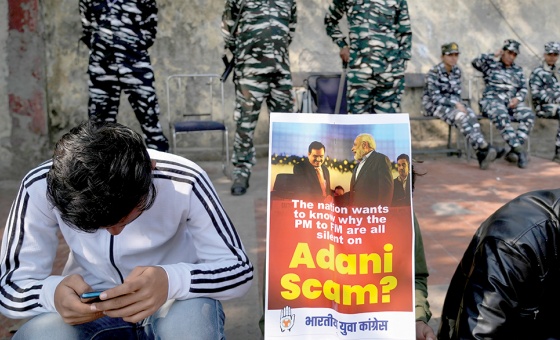This is the last article you can read this month
You can read more article this month
You can read more articles this month
Sorry your limit is up for this month
Reset on:
Please help support the Morning Star by subscribing here
SOARING numbers of black and ethnic minority (BME) workers face significant health risks from night shifts, new research by the TUC warns today.
While number of white workers doing night work has fallen, the number of BME workers doing them has skyrocketed by 360,000 over the past decade — a rise of 71 per cent, its analysis showed.
By contrast, the number of white workers regularly doing night shifts has fallen by more than 570,000 — a 19 per cent reduction.
TUC general secretary Paul Nowak said: “We all owe Britain’s night workers a huge debt for keeping the country running while the rest of us are asleep.
“They do vital work. But too many night workers are on insecure contracts that can often lead to exploitation, excessive fatigue and a breakdown of personal relationships.
“And it is no coincidence that the burden of night-work now disproportionally falls on black and ethnic minority workers.
“This is the result of persistent structural inequalities in our labour market.”
This analysis is published as part of a new joint union report undertaken on behalf of Community, CWU, Equity, RMT and TSSA by University of Greenwich and Anglia Ruskin University.
It also found that night work has since 2014 become more common for young workers (age 16-24) — where there has been an increase of 37,500 and older workers (55+), with an increase of 178,200.
Night workers are typically found in transport and storage, health and social work and accommodation and food services.
Anglia Ruskin University professor of work and employment Sian Moore said: “Scientific research shows that night work has significant impacts on workers’ physical and mental health.
“Our interviews with night workers show that they are sleep deprived and permanently fatigued, with insufficient time for recovery between shifts and recovery eating into workers’ own time.
“Women worked nights to enable them to take and collect children to and from school and in order to avoid childcare costs. There were reports of parents swapping children in car parks between their shifts.
“Yet night work has negative effects on relationships with partners and children and on social lives.”
Professor Moore said that those on night shifts “may be lone workers and thus face significant risk, including dealing with violence.”
“Many night workers are not paid extra or sufficiently to compensate them for these risks, which have particular impacts as workers get older,” she said.








